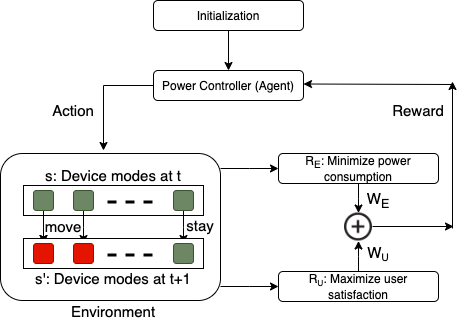Multi-objective Reinforcement Learning based approach for User-Centric Power Optimization in Smart Home Environments
 w
w
Back Button, take me home
Abstract
Smart homes require every device inside them to be connected with each other at all times, which leads to a lot of power wastage on a daily basis. As the devices inside a smart home increase, it becomes difficult for the user to control or operate every individual device optimally. Therefore, users generally rely on power management systems for such optimization but often are not satisfied with the results. In this paper, we present a novel multi-objective reinforcement learning framework with two-fold objectives of minimizing power consumption and maximizing user satisfaction. The framework explores the trade-off between the two objectives and converges to a better power management policy when both objectives are considered while finding an optimal policy. We experiment on real-world smart home data, and show that the multi-objective approaches: i) establish trade-off between the two objectives, ii) achieve better combined user satisfaction and power consumption than single-objective approaches. We also show that the devices that are used regularly and have several fluctuations in device modes at regular intervals should be targeted for optimization, and the experiments on data from other smart homes fetch similar results, hence ensuring transfer-ability of the proposed framework.